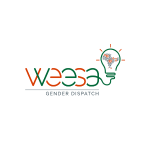

Women’s Economic Empowerment in South Asia (Hosted by SAR GIL)
Tags
- Women’s Groups (20)
- Gender-based Violence (17)
- Implementation Completion Report (ICR) (15)
- Measurement (10)
- Leadership (18)
- Afghanistan (13)
- Social Norms (8)
- Infographics (9)
- Transportation (10)
- Green Transition (6)
- Toolkits (10)
- Pakistan (17)
- Energy (10)
- Jobs (43)
- Self-help Groups (12)
- Infrastructure (7)
- Agriculture (12)
- Social Protection (12)
- Digital Inclusion (16)
- Nepal (7)
- Private Sector (14)
- Care Economy (10)
- Agency and Self-efficacy (4)
- Bhutan (2)
- Sri Lanka (5)
- Podcast (17)
- Operational Documents (20)
- India (23)
- Assets and Resources (14)
- Bangladesh (19)
- Maldives (1)
- Climate Change (18)
- Entrepreneurship (19)
- Financial Inclusion (10)
- Policies and Legislation (14)
- Male Engagement (7)
- Gender Budgeting (7)
- Implementation Completion Report Review (ICRR) (5)
- Education and Skills (22)
Documents
Supply-Side Gender-Disaggregated Data for Advancing Financial Inclusion: Insights and Areas for Further Research (2024)
The gender gap in financial inclusion continues to be unacceptably high in most developing countries, highlighting the need to prioritize policies that promote gender equity in the financial sector more
How Data-Driven Approaches Are Advancing Efforts to End Gender-Based Violence in Zanzibar (2023)
An illuminating story about the power of data, this blog explains how the Office of the Chief Government Statistician Zanzibar has effected change by collecting and distributing comprehensive GBV data and building
Data Must Fuel Gender Equality. Here’s How to Do It (2023)
From the directors of the gender groups at the World Bank and IFC, and the World Bank's development data group, this blog highlights the importance of gender data to inform operations, track
A Call to Improve the Quality and Transparency of Women’s Economic Empowerment and Gender Equality Indexes (2022)
Gender indexes that allow comparisons across countries and time can be improved by making the raw data behind them available for download, and by publishing technical notes to explain the
How to Improve Indicators on Women’s Economic Empowerment: Guidance Note on Gender-Sensitive Survey Design and Implementation (2022)
Intended for time-pressed survey practitioners, this World Bank Group guidance note focuses on targeted adjustments to existing data collection tools and processes to help scale-up the production and use of
How to Assess Gender Data Gaps in the Economic Domain (2022)
The World Bank’s Strengthening Gender Statistics Project works with national statistics offices in 12 partner countries, including Bangladesh, to improve the availability, quality, and use of gender data. This summary
Missing SDG Gender Indicators (2023)
Out of the 231 indicators used to track progress in the Sustainable Development Goal agenda, 50 gender-related indicators cut across a wide range of goals. This paper looks at why
Bangladesh Time-Use Survey (2023)
Bangladesh conducted its first-ever time-use survey in 2021. This statistical report offers important insights into how gender roles shape the division of labor between men and women, delving into time-use
Measuring Women and Men’s Work (2021)
Measurements of employment and other work are sensitive to survey design, especially for women. This joint report by the ILO and the World Bank offers findings from a pilot study
Leveraging Gender Data to Accelerate Gender Equality (2023)
A new research note from the World Bank Group gives a detailed look at the importance of data for achieving gender equality. Providing descriptions of gender data initiatives and recommendations